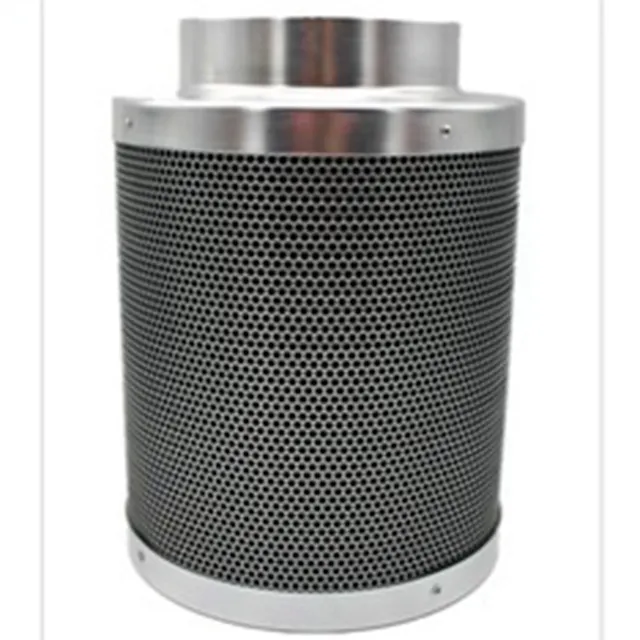 Tel:
+8615930870079
Tel:
+8615930870079
ธ.ค. . 11, 2024 09:45 Back to list
Understanding Dust Cartridge Efficiency for Improved Air Quality and Filtration
Understanding Dust Cartridges Importance, Applications, and Advantages
Dust cartridges are essential components in various industrial and commercial applications, playing a critical role in maintaining air quality and ensuring the efficiency of dust collection systems. As industries come under increasing scrutiny regarding workplace safety and environmental impact, the proper management of dust and particulate matter has never been more important. This article explores what dust cartridges are, their applications, and the advantages they offer.
What are Dust Cartridges?
Dust cartridges are specialized filters designed to trap and collect dust, debris, and other particulate emissions generated during various industrial processes. Typically constructed from high-efficiency materials such as polyester, polypropylene, or another synthetic fabric, these cartridges provide an effective barrier against fine particulates. They work by using a combination of mechanical filtration, electrostatic attraction, and, in some cases, chemical absorption to capture a range of particle sizes.
Applications of Dust Cartridges
The applications for dust cartridges are vast and varied, spanning multiple industries, including
1. Manufacturing In manufacturing environments, dust is generated from machining, cutting, and grinding processes. Dust cartridges play a crucial role in extracting these particles, thus protecting workers and reducing health hazards, as well as maintaining equipment efficiency.
2. Construction Construction sites often deal with increasing levels of dust from activities like demolition and sanding. Dust cartridges installed in portable dust collectors help ensure compliance with safety regulations while protecting workers from respiratory issues associated with inhaling silica and other harmful materials.
3. Woodworking Wood dust, which can be particularly dangerous due to its fine particulate nature, is a significant concern in woodworking shops. Dust cartridges integrated into dust collection systems help manage this hazard effectively.
4. Food Processing In the food industry, dust generated from milling, grinding, and mixing can pose hazards not only to employee health but also to product quality. Specialized dust cartridges are used in these environments to meet stringent hygiene standards while ensuring clean air.
dust cartridges

5. Pharmaceuticals In pharmaceutical production, respirable dust can contaminate sensitive products. Dust cartridges are crucial in maintaining a clean manufacturing environment, adhering to industry regulations regarding air quality and contamination control.
Advantages of Dust Cartridges
Investing in dust cartridges comes with several advantages
1. Improved Air Quality By effectively capturing airborne dust and particulate matter, cartridges help maintain a healthier work environment. This is crucial for worker well-being and compliance with occupational health and safety standards.
2. Enhanced Equipment Performance Dust accumulation can lead to equipment wear and tear, reducing efficiency and increasing maintenance costs. By using dust cartridges, businesses can protect machinery and extend the life of their equipment.
3. Cost-Effectiveness While the initial investment in dust collection systems and cartridges may be significant, the long-term savings associated with reduced maintenance costs and improved operational efficiency can offset these expenses.
4. Sustainability Many modern dust cartridges are designed to be reusable or made from recyclable materials, contributing to a more sustainable approach to industrial operations. This aligns with increasing corporate responsibility towards environmental stewardship.
5. Customization Dust cartridges can be tailored to meet specific requirements depending on the particulate matter being collected. This creates opportunities for industries to optimize their dust control systems, ensuring maximum efficiency.
Conclusion
Dust cartridges are indispensable in the fight against industrial dust and particulate pollution. Their effective filtration capabilities contribute significantly to workplace safety, environmental compliance, and operational efficiency. As industries continue to evolve and face new challenges regarding air quality, the role of dust cartridges will remain essential. By prioritizing the proper selection, implementation, and maintenance of dust filtration systems, businesses can protect their workforce, preserve their equipment, and contribute positively to their environmental responsibilities. In an era where health and sustainability are paramount, investing in quality dust cartridges is not just a regulatory necessity but a strategic advantage.
-
Nano Fiber Technology: Revolutionizing Cartridge Dust Collector FiltersNewsAug.06,2025
-
How Activated Carbon Air Cartridges Eliminate OdorsNewsAug.06,2025
-
Dust Filter Cartridge Handling Fine Particulate MatterNewsAug.06,2025
-
Cartridge Dust Collector Filter for Welding Fume ExtractionNewsAug.06,2025
-
Activated Carbon Filter Cartridge Effectiveness Against VOCsNewsAug.06,2025
-
Activated Carbon Air Filter Cartridge Benefits ExplainedNewsAug.06,2025

 Email:
Email:





